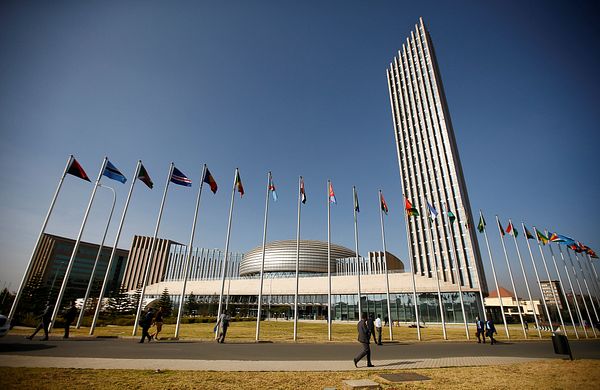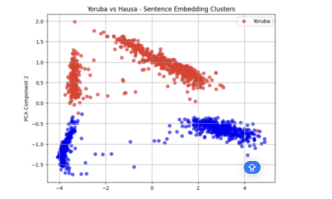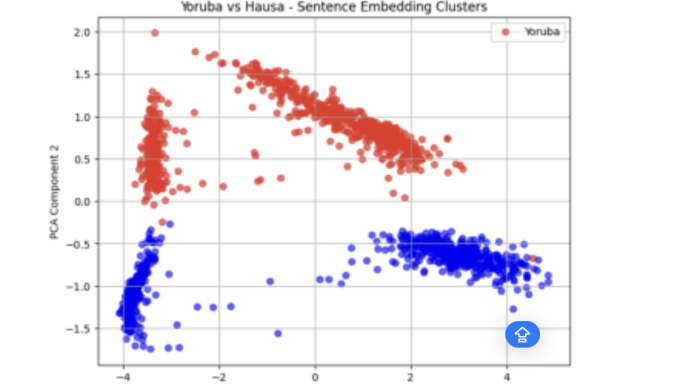Introduction
The intersection of artificial intelligence (AI) and democratic governance presents a critical and timely research agenda for African nations, particularly as AI technologies increasingly shape political processes. From digital voter registration systems to AI-enhanced surveillance and content moderation tools, the anticipated deployment of AI in electoral contexts raises both opportunities and challenges for democratic consolidation (Jobin, Ienca, and Vayena 2019). While these technologies hold the potential to improve electoral efficiency and transparency, they also risk introducing new forms of manipulation, bias, and disinformation that could erode public trust and electoral legitimacy (Floridi 2020; Biniok and Maedche 2019).
In African democracies, where elections are often contested amid weak institutions and volatile political landscapes, the governance of AI assumes heightened importance. Countries such as Nigeria and Kenya have already experimented with biometric verification and real-time results transmission, but the broader regulatory frameworks to safeguard against misuse remain underdeveloped (Umar and Nwobilor 2020). Recognising this gap, the proposed study aims to investigate how African nations can harmonise AI governance to safeguard democratic processes from AI-driven manipulation.
This research will build on existing scholarship in political science, digital governance, and ethics, engaging with international frameworks such as the OECD AI Principles (2019), the European Union’s guidelines (European Commission 2019), and notably, the African Union’s (AU) Continental AI Strategy (2024), which provides a regional vision for ethical, inclusive, and sustainable AI adoption. The project adopts a policy-focused analytical framework, drawing insights from governance literature, African AI policy initiatives (Effoduh 2023; World Bank 2021), and comparative international examples. The aim is to explore the governance gaps, assess the political and institutional readiness of African states, and propose a harmonised, context-sensitive governance approach.
Positioned within the social sciences, this research takes a critical policy lens to examine AI as a subject of inquiry in relation to democratic processes. Its relevance to Nigeria and the broader African context lies in its potential to inform the development of robust, regionally coordinated governance models that anticipate and mitigate the risks of AI-driven political manipulation.
Methodology
This research will adopt a qualitative, interpretive approach grounded in comparative policy analysis and critical governance studies. Its primary objective is to explore the governance of artificial intelligence (AI) within African electoral contexts, focusing on Nigeria, Kenya, and South Africa as representative case studies. These countries have been selected due to their relative leadership in digital adoption within Africa and their diverse experiences with electoral technology implementation (Effoduh 2023; Umar and Nwobilor 2020). The research design will centre on three core questions:
- What governance frameworks currently exist for regulating AI use in African electoral contexts?
- How do these frameworks compare with international benchmarks and models, particularly the African Union’s Continental AI Strategy (2024) and the Estonian regulatory approach?
- What practical policy pathways can African nations pursue to harmonise AI governance and safeguard elections from AI-driven manipulation?
The research will draw on multiple data sources, including:
- Primary materials, such as national AI strategies, legal frameworks, electoral commission documents, and regional charters from bodies like the African Union and ECOWAS.
- Key regional references, including the AU Continental AI Strategy (2024), which articulates ethical, inclusive, and sustainable AI governance priorities for Africa.
- Secondary sources, comprising scholarly literature on AI ethics, digital governance, algorithmic accountability, and democratic theory (Floridi 2020; Jobin, Ienca, and Vayena 2019; Biniok and Maedche 2019).
The study will use a purposive sampling strategy to select country cases that represent diverse governance and technological profiles—focusing on Nigeria, Kenya, and South Africa as African cases, and Estonia as a comparative benchmark from a digitally advanced democracy (The Estonian Government 2020; Ministry of Economic Affairs and Communications of Estonia 2021). This comparative lens will allow the study to identify governance gaps, institutional challenges, and areas of promising policy transfer.
The theoretical framework draws from critical policy studies and democratic theory, particularly scholarship on digital governance, surveillance capitalism, and algorithmic harms (Zuboff 2019; Tufekci 2015). By framing AI as a political and institutional actor, the research will analyse how governance arrangements shape the use and consequences of AI technologies in electoral processes.
Ethical Considerations
Ethical rigour is central to this proposed research, particularly given its focus on AI governance within politically sensitive electoral contexts. The study will critically engage with core ethical principles such as data privacy, algorithmic fairness, transparency, and accountability—principles that are especially salient in environments characterised by fragile democratic institutions and contested political legitimacy (Jobin, Ienca, and Vayena 2019; Umar and Nwobilor 2020).
A key ethical concern involves the risk of digital surveillance and voter profiling, which can lead to the erosion of individual autonomy and the suppression of dissent. AI technologies deployed in elections—such as facial recognition systems, predictive analytics, and misinformation detection tools—can easily be weaponised to serve partisan interests, thereby exacerbating existing power asymmetries (Floridi 2020; Effoduh 2023). The proposed study will maintain a critical focus on these risks, situating them within broader debates about digital rights and the ethics of algorithmic governance (Biniok and Maedche 2019; Zuboff 2019).
The research also acknowledges the structural imbalances between domestic actors (such as national electoral commissions), international technology firms, and regional governance institutions. This dynamic often results in policy dependency and limited local control over AI-driven electoral technologies. The study will examine these power relations, drawing insights from the African Union’s Continental AI Strategy (2024), which emphasises data sovereignty, ethical AI development, and the promotion of African values in technological governance.
Cultural appropriateness and inclusivity are integral to the research design. The study will prioritise African-authored policy documents and amplify voices from local civil society organisations and electoral observers, ensuring that the ethical analysis is both grounded and context-sensitive (Effoduh 2023; Umar and Nwobilor 2020). Where possible, it will seek to integrate perspectives from marginalised communities that are disproportionately affected by AI-induced governance shifts.
In terms of research ethics, the study will adhere to established guidelines on responsible scholarship and data handling, following best practices laid out by institutions such as the OECD (2019) and the European Commission (2019). Although the study does not involve human participants, it will still engage with sensitive political materials and policy documents, necessitating careful attention to confidentiality, integrity, and transparency in its analysis and reporting.
By foregrounding these ethical considerations, the research aims to contribute not only to scholarly debates but also to practical frameworks that can guide policymakers, technologists, and civil society actors in developing AI governance systems that are both ethically robust and democratically legitimate.
Findings
This research project anticipates generating findings that will deepen understanding of governance challenges and opportunities surrounding AI deployment in African electoral processes. Preliminary analysis of policy documents and governance literature suggests that while many African states have shown enthusiasm for digital innovation in elections, the regulatory frameworks governing AI remain fragmented and underdeveloped (Effoduh 2023; Umar and Nwobilor 2020). The research will examine how this governance gap increases vulnerability to AI-driven political manipulation, including voter microtargeting, algorithmic bias, disinformation amplification, and the misuse of biometric and surveillance technologies.
A key line of inquiry will explore the extent to which the AU Continental AI Strategy (2024) provides a coherent continental framework for addressing these risks. Early reviews indicate that the AU strategy emphasises ethical, inclusive, and sustainable AI development, with calls for member states to adopt shared principles on transparency, accountability, and human rights protections (African Union 2024). The study will investigate how national-level policies in Nigeria, Kenya, and South Africa align with or diverge from these regional commitments, and where gaps in implementation and enforcement may exist.
The research will also investigate comparative lessons from Estonia, a country renowned for its centralised, ethical AI governance structures and integrated digital services (The Estonian Government 2020; Ministry of Economic Affairs and Communications of Estonia 2021). By applying a comparative lens, the study aims to identify which aspects of Estonia’s model—such as algorithmic audits, multi-stakeholder governance, or public trust-building measures—might be adapted to African governance contexts.
Although the research is still in progress, anticipated outcomes include a detailed mapping of governance gaps, an assessment of political and institutional readiness across African cases, and policy recommendations for harmonising national and regional efforts. The study will also reflect critically on the structural constraints—such as resource limitations, external technological dependencies, and contested political environments—that complicate AI governance in Africa (Jobin, Ienca, and Vayena 2019; Floridi 2020).
Ultimately, this project seeks to contribute both empirical insights and theoretical reflections on how African democracies can manage the dual challenge of technological innovation and democratic safeguarding.
Interdisciplinary Implications
This research proposal underscores the inherently interdisciplinary nature of AI governance, situated at the confluence of political science, law, ethics, information technology, and governance studies. By investigating the deployment of AI in electoral systems, the study bridges debates around algorithmic accountability, democratic theory, and socio-technical governance, offering a framework that is both analytically rigorous and contextually grounded.
A key interdisciplinary implication anticipated by the study is the necessity of integrating legal frameworks with technological safeguards to ensure that AI tools uphold democratic principles. As Floridi et al. (2018) and Biniok and Maedche (2019) have noted, effective AI governance requires a synthesis of normative ethical standards and enforceable legal mechanisms—an approach that remains underdeveloped in many African contexts. The research will explore how cross-sectoral collaboration between legal scholars, technologists, policymakers, and civil society actors can foster more robust and responsive governance structures.
Furthermore, the study will contribute to broader discussions around data sovereignty and digital colonialism, particularly in light of Africa’s reliance on foreign-developed AI systems (Zuboff 2019; Effoduh 2023). By engaging with the African Union’s Continental AI Strategy (2024), which emphasises local ownership, data protection, and capacity building, the research will highlight the critical role of regional institutions in shaping equitable and culturally relevant AI frameworks.
The study is also expected to have pedagogical implications. Insights from this research could inform curriculum development in higher education programmes across public policy, computer science, legal studies, and ethics. Embedding topics such as AI ethics, algorithmic governance, and electoral technology into academic curricula will help equip future practitioners and scholars with the competencies needed to navigate the complexities of AI in governance (European Commission 2019; OECD 2019).
Lastly, the research underscores the practical necessity of multi-stakeholder approaches in policy design and implementation. It will advocate for the inclusion of marginalised voices—particularly grassroots organisations, election monitors, and affected communities—in shaping AI governance policies. Given the resource constraints typical of many African states, the study anticipates emphasising scalable, context-sensitive governance models that are affordable and adaptable, ensuring that ethical AI deployment is not confined to well-resourced settings alone (Ibrahim and Nwobilor 2020; The Estonian Government 2020). In summary, the research aspires to contribute both to scholarly debates and actionable governance strategies that align technological advancement with democratic values and local realities. Theoretically, this research will contribute to debates about digital governance, democratic resilience, and the ethics of algorithmic power. Practically, it aims to offer policymakers, civil society actors, and international partners a roadmap for designing governance models that are democratic, adaptive, and responsive to the needs of African societies.
The study acknowledges certain limitations. As a qualitative and policy-oriented investigation, it may not capture the full empirical diversity of electoral experiences across Africa, nor does it include primary fieldwork at this stage. Future research will need to integrate quantitative data, stakeholder interviews, and comparative fieldwork to deepen understanding of AI’s impact on democratic practices.
Conclusion
This research aims to advance scholarly and policy debates on how African states can develop harmonised and context-sensitive frameworks for AI in electoral processes. By exploring the governance gaps and institutional challenges associated with AI deployment in elections, the project seeks to highlight both the promise and perils of AI for democratic consolidation across the continent. The study anticipates finding that, while AI tools hold potential for improving electoral transparency and administrative efficiency, their unregulated or poorly overseen use risks amplifying political inequalities, eroding public trust, and undermining democratic norms (Jobin, Ienca, and Vayena 2019; Floridi 2018).
A central argument of this research will be that effective AI governance in Africa must be shaped through both national innovation and regional coordination. The AU Continental AI Strategy (2024) offers a crucial regional framework for promoting ethical, inclusive, and sustainable AI governance, but its success will depend on how well national governments, including Nigeria, Kenya, and South Africa, translate continental principles into enforceable domestic policies (African Union 2024). Drawing on comparative lessons from Estonia, the project will propose context-appropriate mechanisms, such as algorithmic audits, public consultations, and cross-sectoral regulatory bodies, to strengthen national governance regimes. In sum, this project aspires to inform the development of governance systems that enable African countries to harness AI’s benefits while safeguarding the integrity of their democratic institutions.
References
AU (African Union). 2024. Continental Artificial Intelligence Strategy. African Union. https://au.int/sites/default/files/documents/44004-doc-EN-_Continental_AI_Strategy_July_2024.pdf.
Biniok, Peter, and Alexander Maedche. 2019. “Ethical Guidelines for Trustworthy AI.” Communications of the ACM 62 (8): 70–79.
Effoduh, Joshua. 2023. AI Governance and Regulatory Gaps in Nigeria. National Centre for Artificial Intelligence and Robotics.
European Commission. 2019. Ethics Guidelines for Trustworthy AI. European Commission. https://ec.europa.eu/digital-single-market/en/news/ethics-guidelines-trustworthy-ai.
Floridi, Luciano, Josh Cowls, Monica Beltrametti, et al. 2018. “AI4People—An Ethical Framework for a Good AI Society: Opportunities, Risks, Principles, and Recommendations.” Minds & Machines 28 (4): 689–707. https://pubmed.ncbi.nlm.nih.gov/30930541/.
Jobin, Anna, Marcello Ienca, and Effy Vayena. 2019. “The Global Landscape of AI Ethics Guidelines.” Nature Machine Intelligence 1: 389–399. https://doi.org/10.1038/s42256-019-0088-2.
Ministry of Economic Affairs and Communications of Estonia. 2021. Estonian AI Strategy 2030. Accessed February 10, 2024. https://www.mkm.ee/sites/default/files/03.02.2020_artificial_intelilgenc_strateegia_eng.pdf.
OECD. 2019. OECD AI Principles. Paris: OECD Publishing.
The Estonian Government. 2020. Estonian AI Taskforce Report: Towards Ethical AI Governance in Estonia. Tallinn: Estonian Government Printing Office.
Tufekci, Zeynep. 2015. “Algorithmic Harms Beyond Facebook and Google: Emergent Challenges of Computational Agency.” Colorado Technology Law Journal 13: 203–218. https://ctlj.colorado.edu/wp-content/uploads/2015/08/Tufekci-final.pdf.
Ibrahim, Umar, A., and Chinyere J. Nwobilor. 2020. “Artificial Intelligence as a Tool for Decision Making: A Perspective from the Central Bank of Nigeria.” International Journal of Managerial Studies and Research 8 (1): 76–85. https://doi.org/10.20431/2349-0349.0801008.
World Bank. 2021. Nigeria: Building a Digital Economy through Artificial Intelligence. Washington, DC: World Bank Group.
Zuboff, Shoshana. 2019. The Age of Surveillance Capitalism: The Fight for a Human Future at the New Frontier of Power. PublicAffairs.













